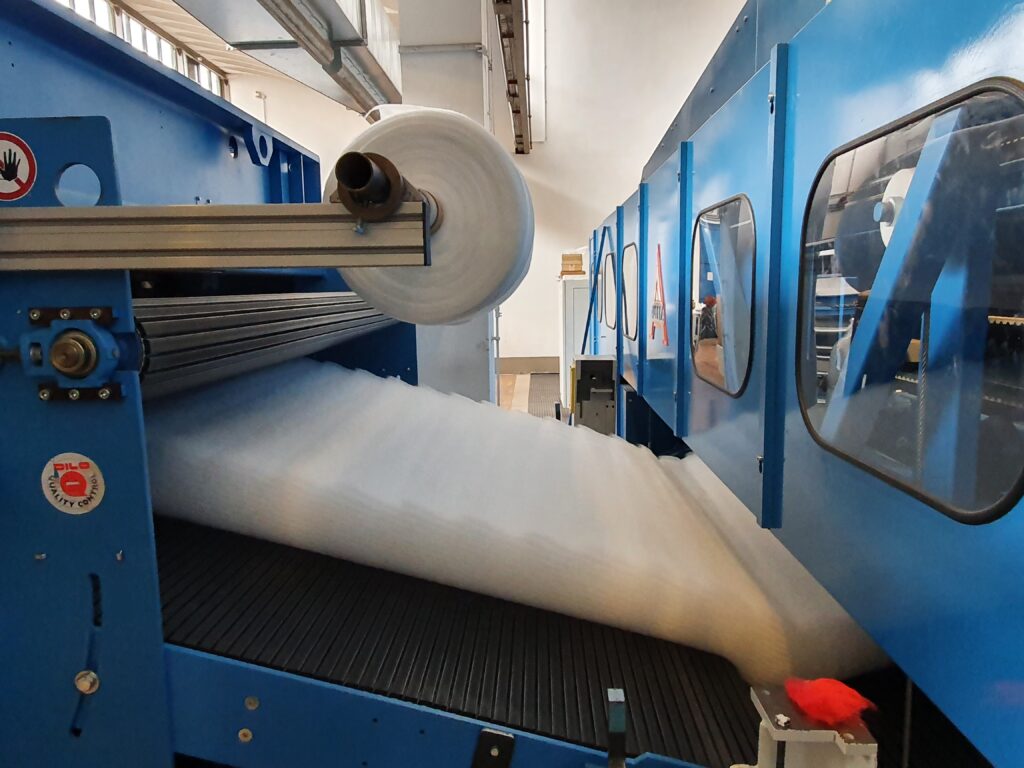Authors: Elena Torres (AITEX) & Anna Grosse, Romy Naumann (STFI)
Bionanopolys offers several opportunities of bionanomaterial development on the industrial sector of textiles. The Textile Industry Research Association – AITEX, is a research & innovation centre which performs characterisation trials and certification of textile materials and articles for a wide range of sectors including interior design, fashion, work wear, healthcare, sports and leisure, land and sea transport, aerospace and sports surfaces. AITEX has a network of ten international offices providing cover for its associates and clients in fifty countries, and this has led to the centre becoming one of Europe’s leading research centres.
The AITEX’s core objective is to create and transfer knowledge of textiles to the private sector, making the textile industry more competitive and opening up doors to new opportunities with a high added-value factor. The centre promotes modernisation and the introduction of emerging technologies through its on-going R+D activities and other projects which contribute to the evolution of the textile industry and issues the most appropriate product certifications to allow an article to compete in the international marketplace and facilitate its introduction into high-end niche markets. AITEX research work has culminated in the signing of several bilateral agreements with centres from around the world to exchange experiences, participate in international R+D projects and generate know-how to provide the private sector with a value-added factor for their products.
The Saxon Textile Research Institute (STFI) is a German non-profit research institution in the Free State of Saxony and continues the long standing traditions of the Saxon textile research and textile industry. Process-related and product-related research work of STFI covers classical textile technologies as well as innovative technical solutions for a wide range of applications in nonwovens and technical textiles. The main fields of research are: nonwovens/films, processing of high-performance fibres, lightweight engineering, technical woven and knitted fabrics, functionalisation/chemical analytics, smart textiles, textile and carbon fibre recycling as well as textile materials research. STFI’s expertise is bundled in the Competence Center of Excellence in Nonwovens, the Innovation Center of Technical Textiles and also the Center for Textile Lightweight Engineering. In 2023, a Center for Textile Sustainability will be inaugurated. STFI runs an accredited textile test laboratory and certification department where all commonly required textile physical, physiological, chemical and optical investigations for fibres, yarns, fabrics and clothing as well as geotextiles are carried out. STFI works closely with European, national and regional authorities together to promote industrial R&D and recommend support programmes for SMEs. STFI is a long-standing member of TEXTRANET (European Network of Textile Research Organisations) and of EDANA (International Association serving the Nonwovens and Related Industries). The research institute is actively supporting the European Technology Platform (ETP) for the Future of Textiles and Clothing.
In this sense, the participation of AITEX and STFI in BIONANOPOLYS project is focussing on the textile sector providing our broad experience to develop innovative and eco-friendly products by offering pilot plants available in the BIONANOPOLYS portfolio, such as:
- Pilot Plant 7 “reactive extrusion” which grants specific properties through covalent bonds between polymer and functional molecules, obtaining biomaterials with stable and irreversible properties.
- These functionalised biomaterials are transformed into mono- and multifilaments using Pilot Plant 11a, which provides continuous filaments and staple fibres to produce final products. For instance, “weaving pilot plant” allows the obtention of small woven textiles samples from one simple coil, while “nonwoven technology” generates nonwovens with specific properties by mixing staple bio-fibres with natural fibres.
- Pilot Plant 11b, the fibre nonwoven line, processes such staple fibres by carding, cross-lapping and needle-punching or stitch-bonding into fibre nonwovens. They are used for e. g. upholstering material, medical applications (e.g. compresses), coating substrates, interior for the automotive industry as well as insulation material for the building sector.
- Pilot Plant 11c is a meltblown nonwoven line for production of nonwovens made of very fine up to ultra-fine filaments for filtration or medical applications.
- Then, Pilot Plant 5 engineers functional nanocapsules with cellulose-based shell and essential or vegetable oils to obtain functional coating for nonwovens and textiles.
- Pilot Plant 11d comprises an auxiliary hand-operated system such as spray cabinet, and a batch system such as nanobubble finishing.
- Pilot Plant 11e enables the incorporation of functional nanocapsules bonded onto nonwovens and fabrics through solvent-free adhesives and biopolymer dispersions though “hot-melt lamination, knife coating and padding system”.
Picture credits: STFI

